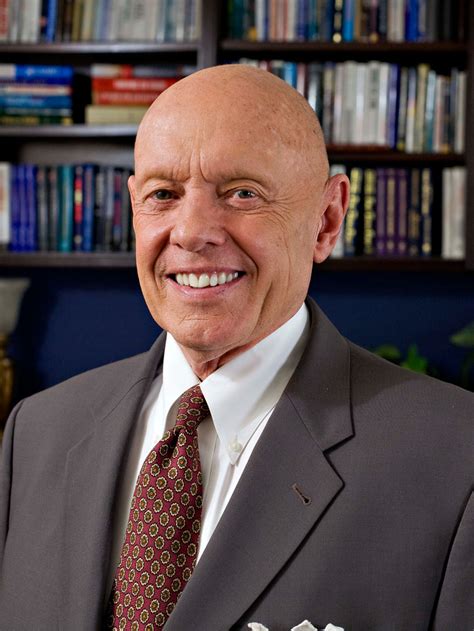A Quote by Stephen Covey
We are free to choose our actions, . . . but we are not free to choose the consequences of these actions.
Quote Topics
Related Quotes
In short, my vision of a responsible free society is one in which we discourage evil, but do not prohibit it. We make our children and students aware of the consequences of drug abuse and other forms of irresponsible behavior. But after all our persuading, if they still want to use harmful drugs, that is their privilege. In a free society, individuals must have the right to do right or wrong, as long as they don't threaten or infringe upon the rights or property of others. They must also suffer the consequences of their actions, as it is from consequences that they learn to choose properly
In the space between stimulus (what happens) and how we respond, lies our freedom to choose. Ultimately, this power to choose is what defines us as human beings. We may have limited choices but we can always choose. We can choose our thoughts, emotions, moods, our words, our actions; we can choose our values and live by principles. It is the choice of acting or being acted upon.
Agency, or the power to choose, was ours as spirit children of our Creator before the world was. It is a gift from God, nearly as precious as life itself. Often, however, agency is misunderstood. While we are free to choose, once we have made those choices, we are tied to the consequence of those choices. We are free to take drugs or not. But once we choose to use a habit-forming drug, we are bound to the consequences of that choice. Addiction surrenders later freedom to choose.
In America, we have freedom of choice. But some are free to choose between Lamborghini and Rolls Royce while others are free to choose which dumpster they're going to have their meal out of next. Some are free to choose which, you know, homes and farms to foreclosed on, while others choose which bridge they're going to sleep under tonight.
The inward persuasion that we are free to do, or not to do a thing, is but a mere illusion. If we trace the true principle of our actions, we shall find, that they are always necessary consequences of our volitions and desires, which are never in our power. You think yourself free, because you do what you will; but are you free to will, or not to will; to desire, or not to desire? Are not your volitions and desires necessarily excited by objects or qualities totally independent of you?



































